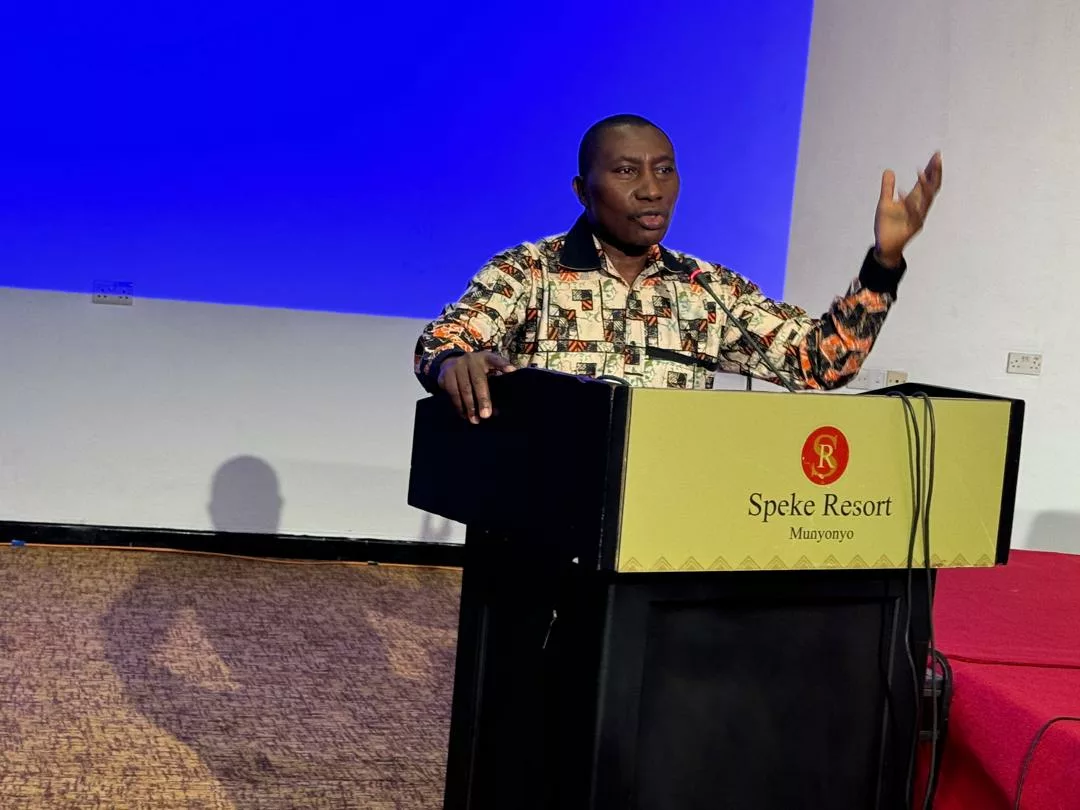The next Kampala Declaration which will drive the post-Malabo Comprehensive Africa Agriculture Development Programme (CAADP) agenda has promised to focus on food sovereignty as a key aspect of the continent’s agricultural transformation.
Speaking to Spiked Online Media on the sidelines of the post-Malabo Validation Workshop of the Ten-Year Strategy and Action Plan (2026-2035) for the Comprehensive Africa Agriculture Development Programme (CAADP) running from 21-23 August 2024 in Kampala, Uganda, H.E. Amb. Josefa Sacko, African Union Commission (AUC)’s Commissioner for Agriculture, Rural Development, Blue Economy, and Sustainable Environment, highlighted the importance of embracing food sovereignty for the continent’s agricultural development.
“When we talk about food sovereignty, we are simply saying that Africa should produce its food and stop relying on imports. Let me give an example of how Africa suffered following the war between Russia and Ukraine. There was a global food crisis when Russia and Ukraine went to war and could no longer supply wheat to various markets in the world, Africa included. We can not talk of food sovereignty in Africa when we can’t feed ourselves,” Commissioner Sacko said.
Addressing participants during the closing day of the workshop in Kampala today, Million Belay, General Coordinator of the Alliance for Food Sovereignty in Africa (AFSA) whose membership includes farmers, fisher-folks, pastoralists, Indigenous peoples, faith-based institutions, women, youth, consumer associations, and the bigger civil society called on stakeholders to adopt a Holistic Agri-Food Systems Approach.
“We support the CAADP’s shift towards a holistic agri-food systems approach. However, we urge caution regarding the emphasis on technological innovations and agro-industrialization. We recognise that there is immense power in technology and innovation. These forces can drive significant change, offering solutions to longstanding challenges. However, innovation is not inherently neutral; it can perpetuate existing power structures and reinforce neo-colonial relationships if not critically examined and contextually applied.
“Greater democratic oversight, regulation, and accountable governance are needed to make technological innovations work for everyone. While we appreciate the CAADP’s focus on inclusivity, we caution against policies that may inadvertently reinforce existing inequities. The prioritization of large-scale agro-industrial projects can sideline smallholder farmers, particularly women. We demand a shift towards truly inclusive policies that empower smallholders and protect their rights.
“While we agree with the CAADP’s emphasis on strong governance and community involvement, we are concerned about the disconnect between stated intentions and the actions outlined in the Action Plan. The document grants a disproportionate influence to the private sector, particularly in the development of policies on emerging technologies. We call for a more balanced approach that genuinely empowers local communities to shape policies that directly affect their livelihoods,” Belay said.
He advocated for a stronger commitment to protecting and promoting traditional food systems as essential components of a resilient and sustainable agricultural future.
Joe Mzinga, the Regional Coordinator of the Eastern and Southern African Small Scale Farmers’ Forum (ESAFF), expressed his organisation’s support for agroecology as the central focus of the CAADP program.
“It has been proven beyond doubt that the application of ecological and social concepts and principles to the design and management of sustainable agriculture and food systems, which are the elements of agroecology, will minimize external inputs and optimize sustainable interactions between plants, animals, humans, and the broader environment,” Mzinga said.
Dr. Godfrey Bahiigwa, the Director of Agriculture and Rural Development of the African Union Commission (AUC) alluded to the fact that the African Food Sovereignty concept has been accepted at the AU Summit this year but said at the moment, there is no consensus on agroecology at the continental level.
“There is no consensus on the use of the terminology agroecology at the African Union level. Let’s go at the farm level and look at the yield of crops like maize, beans, cassava, and sweet potatoes, or the increase in the milk produced by cows, for example. Terminologies will not matter if we address those issues. There is no consensus or guidance by AU member states on agroecology. The Food Sovereignty Summit in Darkar last year orgasnised by the African Development Bank and attended by 38 heads of state saw its outcomes endorsed by the AU Summit this year and food sovereignty was in there,” Dr. Bahiigwa said.
Dr. Babafemi Oyewole, the Chief Executive Officer of the Pan-African Farmers’ Organisation (PAFO) empasised the need to focus on Africa Food Sovereignty for identity, sustainability against geopolitical shocks like sanctions or unfriendly regimes and ensure that Africa has mainly its important inputs like seed, feed, right farm implements, and research centres.
He called for the recognition and support of Farmer Managed Seed Systems (FMSS) to support the vital role they play in preserving agricultural biodiversity and a variety of crops, and livestock that are adapted to local conditions, essential for food sovereignty and the ability of communities to withstand environmental and other shocks.
Domingos Zefanias Gove, the Director of Food Agriculture and Natural Resources (FANR) at the Southern African Development Community (SADC) Secretariat SADC underscored the need for Member States to embrace several instruments, strategies, and frameworks including the Regional Agricultural Policy; the Regional Agriculture Investment Plan; the National Agriculture Investment Plans; National Agriculture Policies; and Agenda 2063 in the implementation of the Post-Malabo Agenda.
Dr. Mwaka Namukonda, the Executive Coordinator of the Consortium of African Youth in Agriculture and Climate Change (CAYACC) Secretariat said as the guardians of the planet, young people fully support the AU’s CAADP commitment to land, climate, and sustainable best practices.
“We urge the integration of environmental education into school curricula and the promotion of efficient green technologies. Young people should be at the forefront of efforts to combat degradation, and climate change and protect our natural resources for a prosperous CAADP ten years of action,” Dr. Namukonda said.






